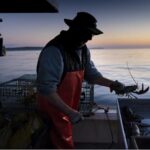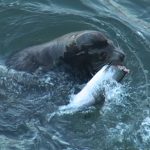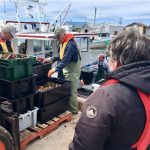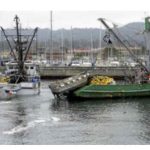Monthly Archives: November 2016
Guest speaker Lobsterman David Spencer reviewed the state of the commercial fishing industry in Rhode Island
As the guest speaker at Seamen’s Church Institute’s annual meeting on Monday, Nov. 14, Newport’s 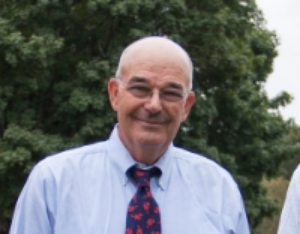 David Spencer, a lobsterman and president of the Commercial Fisheries Research Foundation, reviewed the state of the commercial fishing industry in Rhode Island. Spencer has run his 85-foot lobster boat Nathaniel Lee out of Newport’s State Pier since 1973, and graciously supplies free lobsters for Seamen’s annual Rock the Docks fundraiser. “Back then, this was a vibrant fishing port, from south to north. It had many boats that docked here,” he said. “It was a good place to fish out of.” According to Spencer, present-day fleets gather quahogs, lobster, crabs, conch and a little known kind of shrimp in these waters. Working “out front” in Rhode Island Sound waters and beyond, the lobster and crab fishery becomes one, “with an explosion of Jonah crabs, which has been a godsend for much of the fleet,” said Spencer. “There is a tremendous demand for these crabs,” which augment a depleted annual lobster catch. In the Ocean State, squid, lobster and crab “are king,” he continued. Squid fishing off Martha’s Vineyard was unparalleled this year. Fishermen can see the bottom almost daily in 12 feet of water, Spencer said, giving the impression that the local sea is sterile rather than filled with organisms. Is this an unintended consequence of the chemicals that treat wastewater? “I don’t know, and neither do they,” he added, noting that starfish are “now gone.” Read the story here 16:09
David Spencer, a lobsterman and president of the Commercial Fisheries Research Foundation, reviewed the state of the commercial fishing industry in Rhode Island. Spencer has run his 85-foot lobster boat Nathaniel Lee out of Newport’s State Pier since 1973, and graciously supplies free lobsters for Seamen’s annual Rock the Docks fundraiser. “Back then, this was a vibrant fishing port, from south to north. It had many boats that docked here,” he said. “It was a good place to fish out of.” According to Spencer, present-day fleets gather quahogs, lobster, crabs, conch and a little known kind of shrimp in these waters. Working “out front” in Rhode Island Sound waters and beyond, the lobster and crab fishery becomes one, “with an explosion of Jonah crabs, which has been a godsend for much of the fleet,” said Spencer. “There is a tremendous demand for these crabs,” which augment a depleted annual lobster catch. In the Ocean State, squid, lobster and crab “are king,” he continued. Squid fishing off Martha’s Vineyard was unparalleled this year. Fishermen can see the bottom almost daily in 12 feet of water, Spencer said, giving the impression that the local sea is sterile rather than filled with organisms. Is this an unintended consequence of the chemicals that treat wastewater? “I don’t know, and neither do they,” he added, noting that starfish are “now gone.” Read the story here 16:09
Fairhaven man sentenced for making hoax distress calls to U.S. Coast Guard
 A Fairhaven man was sentenced Tuesday in U.S. District Court in Boston in connection with sending three false distress messages to the U.S. Coast Guard over the radio. Roger Martin, 47, was sentenced by U.S. District Court Judge Richard G. Stearns to one year of probation and ordered to pay $7,182 in restitution to the U.S. Coast Guard. In August 2016, Martin pleaded guilty to three counts of sending false distress messages to the U.S. Coast Guard and one count of identity fraud. Martin, in three separate calls, claimed that he was on a boat in the Cape Cod Canal that was sinking. During the calls he impersonated a resident of Fairhaven, providing a name, street address and, on one occasion, date of birth. Martin had obtained the date of birth through the improper use of a law enforcement database through his former employment as a Bristol Country Sheriff’s dispatcher. In response to the calls, the U.S. Coast Guard and local law enforcement expended resources ascertaining that there was no true emergency and attempting to track down the hoax caller. Link 12:57
A Fairhaven man was sentenced Tuesday in U.S. District Court in Boston in connection with sending three false distress messages to the U.S. Coast Guard over the radio. Roger Martin, 47, was sentenced by U.S. District Court Judge Richard G. Stearns to one year of probation and ordered to pay $7,182 in restitution to the U.S. Coast Guard. In August 2016, Martin pleaded guilty to three counts of sending false distress messages to the U.S. Coast Guard and one count of identity fraud. Martin, in three separate calls, claimed that he was on a boat in the Cape Cod Canal that was sinking. During the calls he impersonated a resident of Fairhaven, providing a name, street address and, on one occasion, date of birth. Martin had obtained the date of birth through the improper use of a law enforcement database through his former employment as a Bristol Country Sheriff’s dispatcher. In response to the calls, the U.S. Coast Guard and local law enforcement expended resources ascertaining that there was no true emergency and attempting to track down the hoax caller. Link 12:57
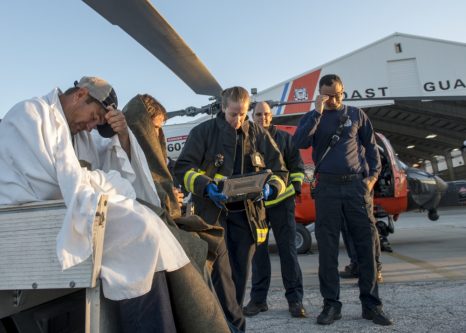
Coast Guard rescues three Gulf fishermen from sunken vessel
The Coast Guard rescued three people from a sunken fishing vessel approximately 35 miles southwest of Cape San Blas, Florida, Wednesday. Watchstanders at Coast Guard Sector Mobile received a mayday call on VHF channel 16 from the crew of the Marion J, a 38-foot fishing vessel, at 1:44 a.m. explaining that their vessel was taking on water. Sector Mobile received a call from a crewmember’s girlfriend who told watchstanders that there were three people aboard the vessel, and the boat was approximately 35 miles southwest of Cape San Blas. The fishing vessel sunk and the crew boarded a life raft. The MH-60 crew located the people in a life raft, hoisted them at 4:40 a.m. and transported them to Coast Guard Air Station Clearwater to emergency medical services in stable condition. link 12:35
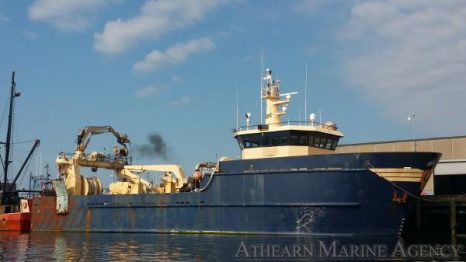
Athearn Marine Agency Boat of the Week: 140′ Raised Foc’sle Mid Water Trawler with Federal Permits
Specifications, information and 9 photo’s click here To see all the boats in this series, Click here 12:04
Commercial crab fishery delayed on Washington’s south coast
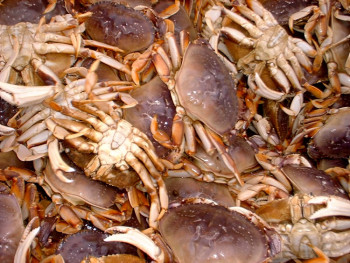 State shellfish managers have delayed the opening of the commercial Dungeness crab fishery on a portion of Washington’s southern coast to allow more time for tests to ensure that crabs are free of marine toxins. The commercial fishery from the Columbia River north to Klipsan Beach on the Long Beach Peninsula was scheduled to open Dec. 1. This delay also includes the Willapa Bay commercial fishery. The delay doesn’t affect fishing in the Westport area, which was already expected to open later in December. The timing of that opening is tied to the catch of tribal crab fishermen as fish managers work to divide the catch based on treaty rights. Tribal crab fishing in the Westport area is already under way. State officials said there is currently no issue with toxins in crab along the Washington coast, but the opening is being delayed in order to coincide with Oregon’s schedule. Not to do so would mean fishermen would concentrate from Long Beach to the Oregon border and put too much fishing pressure on the area, fish managers said. Read the story here 11:23
State shellfish managers have delayed the opening of the commercial Dungeness crab fishery on a portion of Washington’s southern coast to allow more time for tests to ensure that crabs are free of marine toxins. The commercial fishery from the Columbia River north to Klipsan Beach on the Long Beach Peninsula was scheduled to open Dec. 1. This delay also includes the Willapa Bay commercial fishery. The delay doesn’t affect fishing in the Westport area, which was already expected to open later in December. The timing of that opening is tied to the catch of tribal crab fishermen as fish managers work to divide the catch based on treaty rights. Tribal crab fishing in the Westport area is already under way. State officials said there is currently no issue with toxins in crab along the Washington coast, but the opening is being delayed in order to coincide with Oregon’s schedule. Not to do so would mean fishermen would concentrate from Long Beach to the Oregon border and put too much fishing pressure on the area, fish managers said. Read the story here 11:23
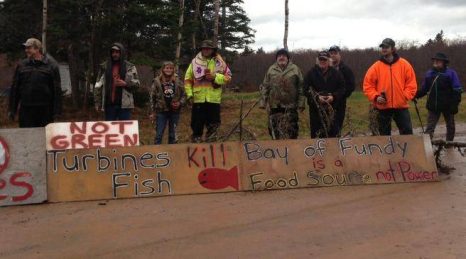
Protesters hope to change course of tidal project
Energy Minister Michel Samson, Emera representatives and members of FORCE weren’t the only ones to go to Parrsboro on Tuesday to witness flicking the switch to turn on an in-stream tidal power turbine. A group of 20 people, including fisherman, Mi’kmaw, scientists and community members protested on the West Bay Road on the way to the FORCE site. They blocked one side of the road with a tree so everyone attending the event would have to drive it and see them. Local RCMP were called but didn’t disband the group or ask them to leave. “We were peaceful but wanted to put our point across that we still do not consent to this,” said weir fisherman Gerry Taylor. Taylor fishes out of Parrsboro and his weir is closest to the FORCE site. He has a wife, four children and staff who rely on him. He’s also the president of the Fundy United Federation, representing fishers and driftnetters in the Minas Passage and Minas Basin. Read the story here 11:04
Gillnetters: Kitzhaber plan doesn’t deliver
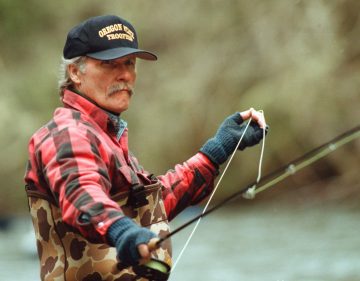 Lower Columbia River gillnetters told the Oregon Fish and Wildlife Commission Nov. 9 that fishery harvest reforms initiated in 2013 are not working economically, while salmon and steelhead anglers accused the commission of vacating its promise to get gillnetters off the river. As many as 150 people attended the Salem commission meeting and public forum on mainstem fishery harvest reforms, where comments were heard on a proposal by ODFW that would continue gillnetting in some areas of the mainstem river. The harvest reform package, also known as the Kitzhaber plan, is in its final year of transition and was to become fully effective at the beginning of 2017 when all Columbia River mainstem fishing would be allocated to recreational anglers and commercial gillnetters would fish in off-channel select areas, mostly in the lower river and mostly for hatchery chinook and coho salmon. However, the reform also promised to keep gillnetters economically whole, but the actual plan implementation is lagging in hatchery production of smolts, identifying additional off-channel areas and developing alternative gear that would allow commercial fishers to better target hatchery fish, among other issues. Read the rest here 10:41
Lower Columbia River gillnetters told the Oregon Fish and Wildlife Commission Nov. 9 that fishery harvest reforms initiated in 2013 are not working economically, while salmon and steelhead anglers accused the commission of vacating its promise to get gillnetters off the river. As many as 150 people attended the Salem commission meeting and public forum on mainstem fishery harvest reforms, where comments were heard on a proposal by ODFW that would continue gillnetting in some areas of the mainstem river. The harvest reform package, also known as the Kitzhaber plan, is in its final year of transition and was to become fully effective at the beginning of 2017 when all Columbia River mainstem fishing would be allocated to recreational anglers and commercial gillnetters would fish in off-channel select areas, mostly in the lower river and mostly for hatchery chinook and coho salmon. However, the reform also promised to keep gillnetters economically whole, but the actual plan implementation is lagging in hatchery production of smolts, identifying additional off-channel areas and developing alternative gear that would allow commercial fishers to better target hatchery fish, among other issues. Read the rest here 10:41
Local crabs testing clean of neurotoxins prior to Dec. 1 commercial opener
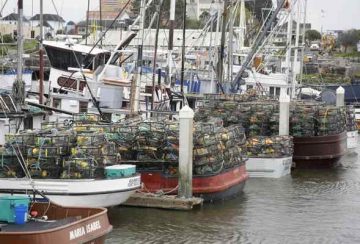 The commercial opener for Dungeness crab fishing is set to take place on Dec. 1, and to the relief of Humboldt County crabbers, there is little sign of domoic acid which caused disastrous effects of last season. Eureka crab fisherman David Helliwell said he is concerned the naturally-produced neurotoxin could make a return this year, but said only time will tell whether they will be able to haul in enough crab before then to make up for last year’s losses. “We were able to pay some bills, but not others,” Helliwell said describing the impacts of last season’s late start. “We didn’t have any income for five months. So the fact that we had income for two months doesn’t make up for all that lost time.” North Coast crabbers were supposed to have started their season on Dec. 1, 2015, but instead found themselves setting their pots in May this year. The season ended in July with the statewide crab fleet pulling in less than half of their average haul. Many crabbers fell into debt and are now waiting for federal emergency relief funds that may never come. Read the story here 10:16
The commercial opener for Dungeness crab fishing is set to take place on Dec. 1, and to the relief of Humboldt County crabbers, there is little sign of domoic acid which caused disastrous effects of last season. Eureka crab fisherman David Helliwell said he is concerned the naturally-produced neurotoxin could make a return this year, but said only time will tell whether they will be able to haul in enough crab before then to make up for last year’s losses. “We were able to pay some bills, but not others,” Helliwell said describing the impacts of last season’s late start. “We didn’t have any income for five months. So the fact that we had income for two months doesn’t make up for all that lost time.” North Coast crabbers were supposed to have started their season on Dec. 1, 2015, but instead found themselves setting their pots in May this year. The season ended in July with the statewide crab fleet pulling in less than half of their average haul. Many crabbers fell into debt and are now waiting for federal emergency relief funds that may never come. Read the story here 10:16
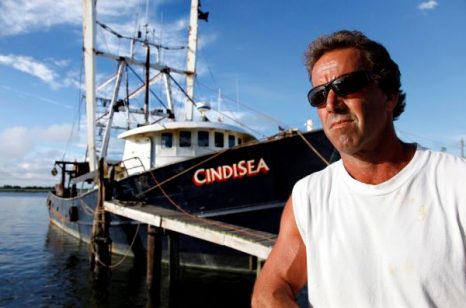
LI fisherman indicted in connection with illegal fluke harvest
An East Northport commercial fisherman who was once an outspoken critic of federal regulators was indicted Tuesday on charges of conspiracy, mail fraud and falsification of federal records in connection with illegally harvest more than $400,000 worth of fluke, authorities said. A federal grand jury returned the indictment against Thomas Kokell, a North Shore clammer who once operated a commercial trawler at Point Lookout. Prosecutors with the U.S. Department of Justice’s Environmental Crimes section charged Kokell was involved in a scheme to cover up the illegal harvest of 196,000 pounds of fluke by falsifying dozens of fishing trip and dealer reports, which are required as part of commercial fishing regulations. The case against Kokell was investigated by agents of the National Marine Fisheries Service. Read the rest here 09:39
Cape Sable Island fisherman reflects on industry changes of past 65 years
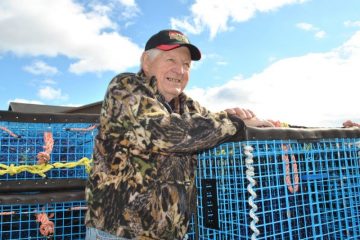 There’s been a world of change since Cape Sable Island fisherman Clifford (Babe) Goreham first started out in the lobster fishing industry 65 years ago. A native of Woods Harbour, Goreham began his fishing career at 15 aboard the deck of a boat owned by the late Johnny Adams, a war veteran. “After the first year I came to Cape Island and went hired for three years, then got a rig of my own,” recalled Goreham in an interview. The new, 36-foot wooden Cape Islander was named Little Jerry after Goreham’s first son, and cost $1,375 complete, he said. It was the early 1950s and a personal lobster licence that cost 25 cents was all you needed to get into the industry. Lobsters were selling for about 25 cents a pound. “We would save them in crates until they reached 50 cents and then sell,” says Goreham. “Since then we’ve come a long way,” he says. “When I started I just had a compass to go by, no radar. Then we finally got a radar, then a loran.” Read the story here 17:18
There’s been a world of change since Cape Sable Island fisherman Clifford (Babe) Goreham first started out in the lobster fishing industry 65 years ago. A native of Woods Harbour, Goreham began his fishing career at 15 aboard the deck of a boat owned by the late Johnny Adams, a war veteran. “After the first year I came to Cape Island and went hired for three years, then got a rig of my own,” recalled Goreham in an interview. The new, 36-foot wooden Cape Islander was named Little Jerry after Goreham’s first son, and cost $1,375 complete, he said. It was the early 1950s and a personal lobster licence that cost 25 cents was all you needed to get into the industry. Lobsters were selling for about 25 cents a pound. “We would save them in crates until they reached 50 cents and then sell,” says Goreham. “Since then we’ve come a long way,” he says. “When I started I just had a compass to go by, no radar. Then we finally got a radar, then a loran.” Read the story here 17:18
Tidal turbine in Bay of Fundy generating the most expensive electricity ever produced in Nova Scotia
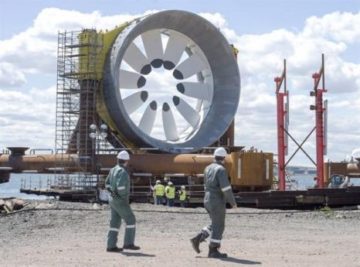 Nova Scotia hailed North America’s first successful grid-connected tidal turbine Tuesday with a ceremonial flipping of a switch at a substation outside Parrsboro. The electricity being generated is some of the most expensive ever produced in Nova Scotia, costing $530 per megawatt hour versus the current average of $60 per megawatt hour. Not everyone is pleased. Protestors stationed outside the event were a reminder that not everyone is convinced. Some fishermen in the Bay of Fundy have gone to court to try and reverse the provincial permit that allowed the deployment. They say it poses a threat to the lobster fishery, a claim the province and Cape Sharp Tidal dismiss. Read the rest here 16:14
Nova Scotia hailed North America’s first successful grid-connected tidal turbine Tuesday with a ceremonial flipping of a switch at a substation outside Parrsboro. The electricity being generated is some of the most expensive ever produced in Nova Scotia, costing $530 per megawatt hour versus the current average of $60 per megawatt hour. Not everyone is pleased. Protestors stationed outside the event were a reminder that not everyone is convinced. Some fishermen in the Bay of Fundy have gone to court to try and reverse the provincial permit that allowed the deployment. They say it poses a threat to the lobster fishery, a claim the province and Cape Sharp Tidal dismiss. Read the rest here 16:14
Sheriffs Deputy accused alongside ‘Codfather’ reportedly told investigators of cash smuggling
 A sheriff’s deputy accused of cash smuggling alongside scallops magnate Carlos ‘Codfather’ Rafael reportedly admitted his actions to investigators, court records show. Rafael’s lawyers argue that because the deputy, Antonio Freitas, allegedly made incriminating statements to officials, trying the cases together would jeopardize Rafael’s constitutional rights. They have asked for a judge to agree to hold the two trials separately. Freitas is accused of having received $17,500 in bulk cash from Rafael and on Feb. 5, 2016, allegedly divided that money between himself and his fiancé and flew to Portugal without declaring it. The funds were later deposited into a Portuguese bank account controlled by Rafael, the indictment states. According to the recent motion made by Rafael’s lawyers, Freitas detailed his role in the cash smuggling when questioned by officers. Read the story here 14:12
A sheriff’s deputy accused of cash smuggling alongside scallops magnate Carlos ‘Codfather’ Rafael reportedly admitted his actions to investigators, court records show. Rafael’s lawyers argue that because the deputy, Antonio Freitas, allegedly made incriminating statements to officials, trying the cases together would jeopardize Rafael’s constitutional rights. They have asked for a judge to agree to hold the two trials separately. Freitas is accused of having received $17,500 in bulk cash from Rafael and on Feb. 5, 2016, allegedly divided that money between himself and his fiancé and flew to Portugal without declaring it. The funds were later deposited into a Portuguese bank account controlled by Rafael, the indictment states. According to the recent motion made by Rafael’s lawyers, Freitas detailed his role in the cash smuggling when questioned by officers. Read the story here 14:12
Sportfishing boat builder appointed to Oregon Fish and Wildlife Commission
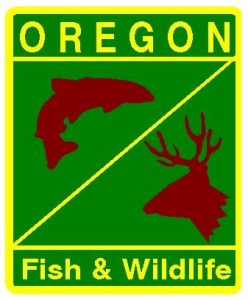 Jim Bittle of Central Point, owner of Willie Boats, Inc., in Medford, has been nominated by Gov. Kate Brown to replace Jason Atkinson of Jacksonville on the Oregon Fish and Wildlife Commission. Atkinson has asked to be replaced. His term expires in 2019. Bittle, known for his business savvy, leadership and advocacy for fish and sportfishing, has owned Willie Boats, Inc., since the 2007 passing of its founder, Willie Illingworth. His appointment has already been applauded by sportfishing leaders as a balance to another Gov. Brown appointee last year, Bruce Buckmaster of Astoria, a long-time supporter of commercial fishing. Also up for reappointment are commissioners Greg Wolley of Portland and Laura Anderson of Newport. The Oregon Senate is scheduled to consider their confirmations in December. link 13:35
Jim Bittle of Central Point, owner of Willie Boats, Inc., in Medford, has been nominated by Gov. Kate Brown to replace Jason Atkinson of Jacksonville on the Oregon Fish and Wildlife Commission. Atkinson has asked to be replaced. His term expires in 2019. Bittle, known for his business savvy, leadership and advocacy for fish and sportfishing, has owned Willie Boats, Inc., since the 2007 passing of its founder, Willie Illingworth. His appointment has already been applauded by sportfishing leaders as a balance to another Gov. Brown appointee last year, Bruce Buckmaster of Astoria, a long-time supporter of commercial fishing. Also up for reappointment are commissioners Greg Wolley of Portland and Laura Anderson of Newport. The Oregon Senate is scheduled to consider their confirmations in December. link 13:35
RI Fishermen, Scientists Study Impact Of Offshore Wind Farm On Fisheries
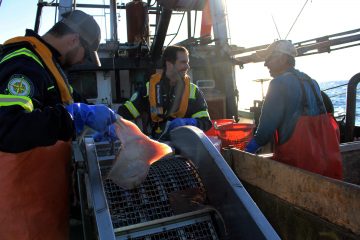 Every month for the past four and a half years, Captain Rodman Sykes has sailed out toward the Block Island Sound with his crew and a small group of scientists. They tow a fish net and scrape the seafloor twice in three different locations: within the area of the Block Island Wind Farm and in areas close to it for reference. “Mostly skates, there’s a sea bass and a few small scup, sea robins, dog fish,” Sykes says aloud as he stands over the fish to inspect them each time his crew brings up the net and releases the catch. “Not much else, but a good sample. So we’ll go on to the next station.” While Sykes redirects his vessel to the next sampling area, scientists get right to work: sorting fish by species, taking their weight, and measuring their length. Together these scientists and fishermen make up the research team hired by Deepwater Wind to collect data to understand the wind farm’s impacts to fish and shellfish. Sykes says at first that didn’t sit well with a small group of fishermen. “I had guys question me about ‘why are you working for the wind farm?’” recalls Sykes. “I told them, ‘I am not working for the wind farm, I am working for the fishing community.’” Read the story here 10:40
Every month for the past four and a half years, Captain Rodman Sykes has sailed out toward the Block Island Sound with his crew and a small group of scientists. They tow a fish net and scrape the seafloor twice in three different locations: within the area of the Block Island Wind Farm and in areas close to it for reference. “Mostly skates, there’s a sea bass and a few small scup, sea robins, dog fish,” Sykes says aloud as he stands over the fish to inspect them each time his crew brings up the net and releases the catch. “Not much else, but a good sample. So we’ll go on to the next station.” While Sykes redirects his vessel to the next sampling area, scientists get right to work: sorting fish by species, taking their weight, and measuring their length. Together these scientists and fishermen make up the research team hired by Deepwater Wind to collect data to understand the wind farm’s impacts to fish and shellfish. Sykes says at first that didn’t sit well with a small group of fishermen. “I had guys question me about ‘why are you working for the wind farm?’” recalls Sykes. “I told them, ‘I am not working for the wind farm, I am working for the fishing community.’” Read the story here 10:40
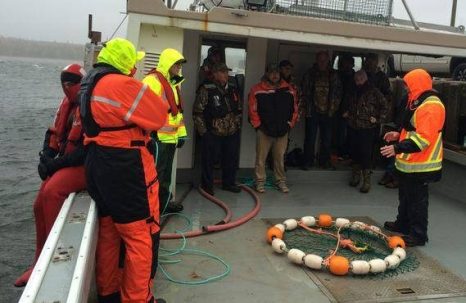
Putting safety at sea first with man-overboard drills
With the start of the commercial lobster fishery on the south shore just days away, safety at sea messages are being delivered to local wharves by the Fisheries Safety Association of Nova Scotia and industry partners through man overboard drills and demonstrations. “The overboard drills are done under the heading, Are you ready?” said Stewart Franck, executive director of the Fisheries Safety Association and a Canadian Registered Safety Professional (CRSP). “We want people to think as they are going through their vessels to check their safety gear, their safety equipment and safety supplies. Do a self-check on health and safety.” Make sure safety equipment such as life rings and overboard ladders are easily accessible and not entangled in rope or gear, advises Franck. “The first time you go to use it isn’t the time to find out that you can’t get at it,” he said. “You can waste valuable time getting to equipment.” Read the story here 09:29
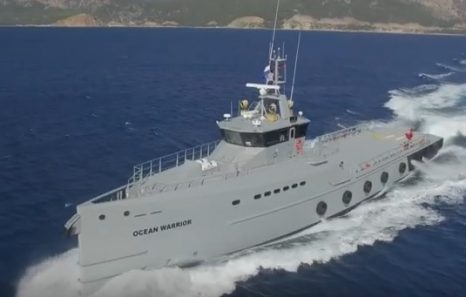
Close ports to Sea Shepherd or risk sharing guilt for its vigilantism
Sea Shepherd is again heading into dangerous territory. Last week’s announcement that its new $12 million custom-built Ocean Warrior (watch video here) has arrived here for a Southern Ocean incursion this summer is disturbing. Ship captain Adam Meyerson is boasting the group’s new vessel is a game changer because of its increased speed, long-range fuel tanks, helicopter landing pad and 20,000 litres-per-minute water cannon. Sea Shepherd is once more aiming to engage in close combat with the Japanese research fleet. That puts this group in the category of an environmental non-state combatant. It’s in an international area engaged in the use of force, with actions close to vigilantism. It enjoys the reputation of piracy, but for quasi public rather than private ends. The International Court of Justice judgment in the whaling case two years ago was a hollow victory for environmental activists. The court didn’t rule that what the Japanese were doing was commercial whaling. Nor did it say that issuing permits to take whales by lethal means for scientific research was illegal. This left open the option of a new Japanese scientific whaling program. Read the rest here 08:56
Crab season in full gear: Commercial season off to good start at Pillar Point Harbor
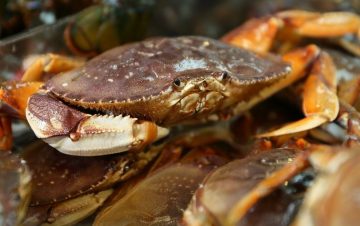 One week after the long-anticipated commercial Dungeness crab season roared to life, hundreds of fishermen and crustacean-craving customers are eagerly indulging in the multi-million dollar industry. State wildlife officials gave the thumbs up for commercial fishermen to begin reeling in crab pots Nov. 15, just in time to satiate a Thanksgiving market. A rainy opening weekend was initially feared to keep customers who buy directly off the boat at bay. Fortunately, gray skies were not a deterrent to those who’ve waited more than a year for fresh crab, said commercial fisherman Barry Day, who reflected on the first weekend of the season. “The leadup to it, I was sitting in the coffee shop thinking, ‘aw, they’re still all scared and there might be a couple of people.’ But I came up here and I fell off my god damn chair. It was raining and we still got bombed. People, people, people! And I’m so grateful for that. I thought wow, the people are back. It’s fantastic,” Day said. “Even in the rain, we were all dripping and wow, totally awesome.” Read the story here 08:10
One week after the long-anticipated commercial Dungeness crab season roared to life, hundreds of fishermen and crustacean-craving customers are eagerly indulging in the multi-million dollar industry. State wildlife officials gave the thumbs up for commercial fishermen to begin reeling in crab pots Nov. 15, just in time to satiate a Thanksgiving market. A rainy opening weekend was initially feared to keep customers who buy directly off the boat at bay. Fortunately, gray skies were not a deterrent to those who’ve waited more than a year for fresh crab, said commercial fisherman Barry Day, who reflected on the first weekend of the season. “The leadup to it, I was sitting in the coffee shop thinking, ‘aw, they’re still all scared and there might be a couple of people.’ But I came up here and I fell off my god damn chair. It was raining and we still got bombed. People, people, people! And I’m so grateful for that. I thought wow, the people are back. It’s fantastic,” Day said. “Even in the rain, we were all dripping and wow, totally awesome.” Read the story here 08:10
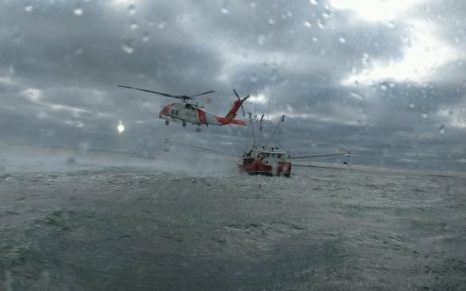
North Carolina scallop vessel may have struck an object
One day after a North Carolina-based scalloper nearly sank in Buzzards Bay, the boat was in safe hands at Fairhaven Shipyard and the Coast Guard was continuing its investigation. The 72-foot Captain Jeff began taking on water shortly after 9:30 a.m., Sunday, about 5 miles from shore near Great Ledge in Buzzards Bay. Six people were rescued in a team effort between the Coast Guard and a local marine response group. They were brought to Fairhaven’s Pease Park Boat Ramp by Towboat US, and the scalloper was eventually towed into New Bedford Harbor. Coast Guard Petty Officer Nicole Groll said the incident is still under investigation, and no official cause had been determined as of Monday afternoon. Responders to scene said the boat may have struck an object near Great Ledge, causing a leak in the boat’s bow area that was large enough to take in more water than pumps could remove. Read the rest here 20:17
Under a full compliment of resources, lobster fisherman are optimistic for repeat of last season
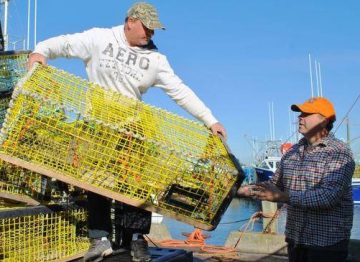 Wharves all along the south shore are piled high with lobster fishing gear and boats are at the ready for dumping day and the start of the commercial lobster fishery on Monday, Nov. 28 in Lobster Fishing Areas (LFA) 33 and 34. As always, Mother Nature has the final call when the season starts. If it’s fair winds and seas, boats in LFA 34 will leave the wharves at 6 a.m. and in LFA 33, at 7 a.m. A full compliment of resources will be on standby on the water and in the air for the season start, said Sean Arbour, search and recue coordinator at the Joint Rescue Coordination Centre (JRCC) in Halifax. “The three lifeboat stations at West Port, Clark’s Harbour and Sambro will have the cutters on the water in position about 20 to 30 miles out on stand-by,” said Arbour. “Offshore we will have two large vessels on-site tasked to search and rescue. Typically, one is stationed off Yarmouth and the other one stationed off Liverpool about two hours off.” Read the rest here 18:20
Wharves all along the south shore are piled high with lobster fishing gear and boats are at the ready for dumping day and the start of the commercial lobster fishery on Monday, Nov. 28 in Lobster Fishing Areas (LFA) 33 and 34. As always, Mother Nature has the final call when the season starts. If it’s fair winds and seas, boats in LFA 34 will leave the wharves at 6 a.m. and in LFA 33, at 7 a.m. A full compliment of resources will be on standby on the water and in the air for the season start, said Sean Arbour, search and recue coordinator at the Joint Rescue Coordination Centre (JRCC) in Halifax. “The three lifeboat stations at West Port, Clark’s Harbour and Sambro will have the cutters on the water in position about 20 to 30 miles out on stand-by,” said Arbour. “Offshore we will have two large vessels on-site tasked to search and rescue. Typically, one is stationed off Yarmouth and the other one stationed off Liverpool about two hours off.” Read the rest here 18:20
British Columbia: Dead humpback found entangled in fish farm anchoring equipment
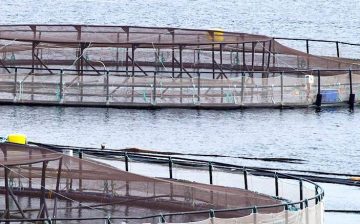 A dead humpback whale has been found stuck in equipment at an empty fish farm on B.C.’s central coast. Marine Harvest Canada says in a news release that the whale was found on Nov. 15 entangled in an anchor support line at a site in Sheep Passage. The company says staff and contractors were in the process of dismantling the site’s anchoring system after another whale got entangled in the equipment in September. The previous whale was safely released, and the entire site is now dismantled. The federal fisheries department has been notified about the dead humpback and will be investigating the incident. Marine Harvest Canada says before the incident in September, nothing like this had ever occurred in their 30 years of operation, and engineers are now testing all their sites to prevent this from happening again. link 16:46
A dead humpback whale has been found stuck in equipment at an empty fish farm on B.C.’s central coast. Marine Harvest Canada says in a news release that the whale was found on Nov. 15 entangled in an anchor support line at a site in Sheep Passage. The company says staff and contractors were in the process of dismantling the site’s anchoring system after another whale got entangled in the equipment in September. The previous whale was safely released, and the entire site is now dismantled. The federal fisheries department has been notified about the dead humpback and will be investigating the incident. Marine Harvest Canada says before the incident in September, nothing like this had ever occurred in their 30 years of operation, and engineers are now testing all their sites to prevent this from happening again. link 16:46
Backyard & Beyond: War against foreign marine species seems to be a losing battle
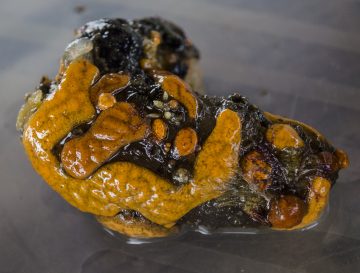 On a cool Friday morning last month, a dozen curious Rhode Islanders lay down on the pier at Point Judith Marina to collect some of the squishy and crunchy creatures that were growing on the side of the docks. Using rusted metal spatulas, they scraped the unknown life into small aquarium nets and saved it in plastic tubs, then spent half an hour trying to identify what they had retrieved. With the exception of a few blue mussels, almost nothing was recognizable. There were sea squirts and shrimp-like things, seaweeds and green crabs, and just about everything was covered in a mushy yellow-brown mat called a colonial tunicate. Almost none of it was native to New England waters. In fact, most it came from the other side of the planet. Marine invasive species are a growing problem. Once a new species arrives, it’s almost impossible to get rid of it. Read the rest here 14:28
On a cool Friday morning last month, a dozen curious Rhode Islanders lay down on the pier at Point Judith Marina to collect some of the squishy and crunchy creatures that were growing on the side of the docks. Using rusted metal spatulas, they scraped the unknown life into small aquarium nets and saved it in plastic tubs, then spent half an hour trying to identify what they had retrieved. With the exception of a few blue mussels, almost nothing was recognizable. There were sea squirts and shrimp-like things, seaweeds and green crabs, and just about everything was covered in a mushy yellow-brown mat called a colonial tunicate. Almost none of it was native to New England waters. In fact, most it came from the other side of the planet. Marine invasive species are a growing problem. Once a new species arrives, it’s almost impossible to get rid of it. Read the rest here 14:28
Lobster industry supports emergency closures along Kaikoura coastline
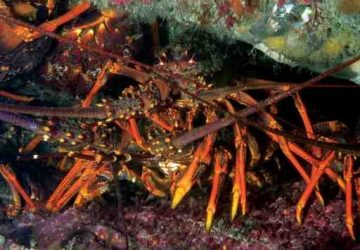 The NZ Rock Lobster Industry Council and the Canterbury Marlborough Rock Lobster Industry Association have added support to the declaration of an emergency temporary closure to lobster fishing along the South Island coast from Cape Campbell to the Conway River. ‘Fine scale data collection over the next few weeks should provide an assurance that the lobster fishery will be resilient to the after effects of the earthquake’, said NZ RLIC Chief Executive Officer, Daryl Sykes. ‘There is an extensive inventory and long time series of rock lobster fisheries data collected by industry participants and independent observers, and it should not take too long to reference current lobster abundance and distribution against the historical record. The fleet of vessels still has approximately 70 tonnes of catch to land in the current season which ends in March 2017. Read the rest here 13:23
The NZ Rock Lobster Industry Council and the Canterbury Marlborough Rock Lobster Industry Association have added support to the declaration of an emergency temporary closure to lobster fishing along the South Island coast from Cape Campbell to the Conway River. ‘Fine scale data collection over the next few weeks should provide an assurance that the lobster fishery will be resilient to the after effects of the earthquake’, said NZ RLIC Chief Executive Officer, Daryl Sykes. ‘There is an extensive inventory and long time series of rock lobster fisheries data collected by industry participants and independent observers, and it should not take too long to reference current lobster abundance and distribution against the historical record. The fleet of vessels still has approximately 70 tonnes of catch to land in the current season which ends in March 2017. Read the rest here 13:23
United Fishermen of Alaska home in on salmon habitat issues
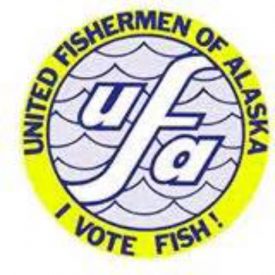 United Fishermen of Alaska is beginning to get an idea of what its new Salmon Habitat Information Program – or SHIP – will look like. The program is aimed at engaging commercial fisherman around the state in salmon habitat issues. UFA, which represents 35 Alaska commercial fishing organizations, conducted a survey this summer to understand what fishermen cared about. SHIP Director Lindsey Bloom said they were asked to list their priorities. “Fisherman, while they’re concerned about a variety of issues, mining, climate change and pollution scored the highest,” said Bloom. “At a local level, people mentioned the proposed [Bristol Bay] Pebble Mine and mining development in the transboundary region as the most mentioned specific concerns.” Fishermen’s worries about mining reaffirmed UFA’s previous advocacy for State Department involvement in transboundary mining. Read the rest here 11:19
United Fishermen of Alaska is beginning to get an idea of what its new Salmon Habitat Information Program – or SHIP – will look like. The program is aimed at engaging commercial fisherman around the state in salmon habitat issues. UFA, which represents 35 Alaska commercial fishing organizations, conducted a survey this summer to understand what fishermen cared about. SHIP Director Lindsey Bloom said they were asked to list their priorities. “Fisherman, while they’re concerned about a variety of issues, mining, climate change and pollution scored the highest,” said Bloom. “At a local level, people mentioned the proposed [Bristol Bay] Pebble Mine and mining development in the transboundary region as the most mentioned specific concerns.” Fishermen’s worries about mining reaffirmed UFA’s previous advocacy for State Department involvement in transboundary mining. Read the rest here 11:19
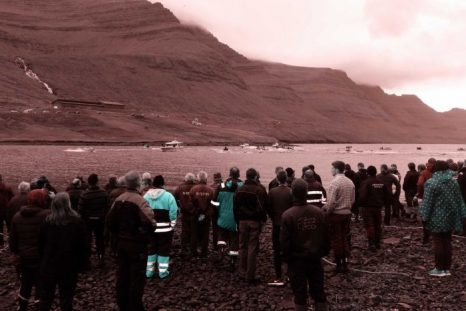
The Grind: Faroe Islands divided over whaling tradition
Residents of the Volcanic archipelago, located in the North Atlantic Ocean between Scotland and Iceland, call the hunt the Grind (pronounced to rhyme with “wind”). When the call is given, flotillas of boats set sail, herding pods of whales onto the beaches, where villagers wade through the water to kill them with lances. Yet whale meat has always been a staple of the Faroese diet: locals have historically consumed the meat and blubber to sustain themselves over the harsh winter months. Jens Mortan Rasmussen, one such whaler, believes that pilot whale is still an important and sustainable food source for the islands. “Everything you see at the supermarket is imported,” he said. “The meat that we eat at the supermarket, we barely know where that comes from. I need to kill about 2000 chickens for the life of one whale. “If you feel that you can eat a chicken and then say I can’t kill a whale, you’re a total hypocrite. Read the story here 11:07
Queensland Government slammed over permanent scallop closure
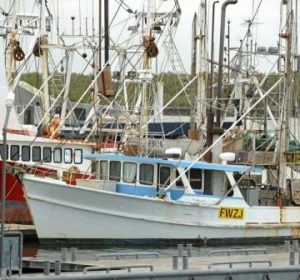 Bundaberg commercial fishers have labelled the State Government’s intention to permanently close scallop replenishment areas as “idiotic”, accusing them of using dodgy, out of date data to threaten livelihoods. On Friday, Fisheries Minister Bill Byrne said Fisheries Queensland officers would hold urgent meetings with commercial operators to outline changes to management to protect the sustainability of scallops, which had plummeted to crisis levels. But Bundaberg trawler owner Andrew Redfearn said the intended permanent closure of the SRAs was another under-handed resource grab from fishermen under the guise of fisheries management for which there was no compensation. “I seriously question the credentials, capability and political persuasion of the person who suggested the permanent closure of the SRAs and also question the same of the other managers that support this idiotic measure.” Mr Redfearn said the government was basing the current 6% of biomass on 1977 catches. Read the story here 09:21
Bundaberg commercial fishers have labelled the State Government’s intention to permanently close scallop replenishment areas as “idiotic”, accusing them of using dodgy, out of date data to threaten livelihoods. On Friday, Fisheries Minister Bill Byrne said Fisheries Queensland officers would hold urgent meetings with commercial operators to outline changes to management to protect the sustainability of scallops, which had plummeted to crisis levels. But Bundaberg trawler owner Andrew Redfearn said the intended permanent closure of the SRAs was another under-handed resource grab from fishermen under the guise of fisheries management for which there was no compensation. “I seriously question the credentials, capability and political persuasion of the person who suggested the permanent closure of the SRAs and also question the same of the other managers that support this idiotic measure.” Mr Redfearn said the government was basing the current 6% of biomass on 1977 catches. Read the story here 09:21
Gloucester Fisheries Commission opposes limited access to the historically open-access whiting fishery
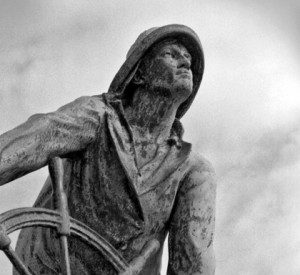 A mere two days after the NEFMC received its first look at the proposals being generated by its whiting advisory panel and whiting committee, Gloucester commission members raised concerns over the impact the proposals could have on the city’s whiting fleet — particularly the small boats. “We should not allow any other species to go under limited access,” said commission member Angela Sanfilippo, also the president of the Gloucester Fishermen’s Wives Association. “This is a healthy stock and I am totally against limited access.” Sanfilippo’s views were echoed by member Joe Orlando and Chairman Mark Ring. The three proposals to potentially limit access to the fishery are contained in currently being developed by the council. The council’s whiting committee hopes to furnish a more finished product at the council’s next meeting in late January. The city fisheries commission, however, wasn’t waiting around for the council staff’s final analysis. It voted 6-0 to oppose any attempts to limit access to Ipswich Bay for the local whiting fleet. Read the story here 08:49
A mere two days after the NEFMC received its first look at the proposals being generated by its whiting advisory panel and whiting committee, Gloucester commission members raised concerns over the impact the proposals could have on the city’s whiting fleet — particularly the small boats. “We should not allow any other species to go under limited access,” said commission member Angela Sanfilippo, also the president of the Gloucester Fishermen’s Wives Association. “This is a healthy stock and I am totally against limited access.” Sanfilippo’s views were echoed by member Joe Orlando and Chairman Mark Ring. The three proposals to potentially limit access to the fishery are contained in currently being developed by the council. The council’s whiting committee hopes to furnish a more finished product at the council’s next meeting in late January. The city fisheries commission, however, wasn’t waiting around for the council staff’s final analysis. It voted 6-0 to oppose any attempts to limit access to Ipswich Bay for the local whiting fleet. Read the story here 08:49
ODFW and ODA close crabbing along large part of Oregon coast
 The Oregon Department of Agriculture and ODFW announced Friday recreational and commercial bay crabbing from Tillamook Head to the California border is closed due to elevated levels of domoic acid. Officials say they found elevated domoic acid levels in the viscera of Dungeness crab collected between Cascade Head and Cape Falcon. This triggered a biotoxin closure. The closure includes harvesting Dungeness and red rock crab in bays and estuaries, off docks, piers, jetties, and the ocean. The coastal areas outside of where the domoic acid was found are closed out of precaution while officials process more samples. The additional sample results could allow ODFW and the Department of Agriculture to reopen some areas and open the ocean crab fisheries, which are scheduled to open December 1. Read the rest here 17:36
The Oregon Department of Agriculture and ODFW announced Friday recreational and commercial bay crabbing from Tillamook Head to the California border is closed due to elevated levels of domoic acid. Officials say they found elevated domoic acid levels in the viscera of Dungeness crab collected between Cascade Head and Cape Falcon. This triggered a biotoxin closure. The closure includes harvesting Dungeness and red rock crab in bays and estuaries, off docks, piers, jetties, and the ocean. The coastal areas outside of where the domoic acid was found are closed out of precaution while officials process more samples. The additional sample results could allow ODFW and the Department of Agriculture to reopen some areas and open the ocean crab fisheries, which are scheduled to open December 1. Read the rest here 17:36
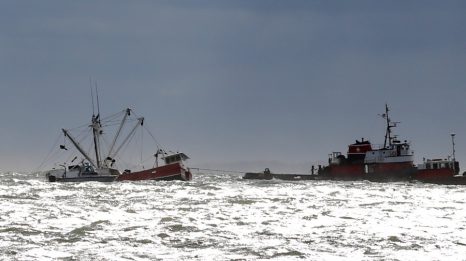
The sinking and recovery/salvage of F/V Captain Jeff
The Coast Guard and local responders rescued 6 people Sunday from a 72-foot scallop boat sinking five miles off New Bedford. The survivors were taken into New Bedford to be evaluated by awaiting emergency services personnel. There were no reported injuries. “The Coast Guard is grateful for the responsiveness and dedication of our interagency partners in Buzzards Bay,” said Lt. Jarrod Pomajzl, the command center chief at Sector Southeastern New England. “Everything they bring to the table improves the search and rescue system, and today they helped save six lives.” Commercial salvage has been arranged. The cause of the sinking is under investigation. The Captain Jeff is home-ported in New Bern, North Carolina. View 11 photos here 16:52
The latest weapon in the fight against illegal fishing? Artificial intelligence
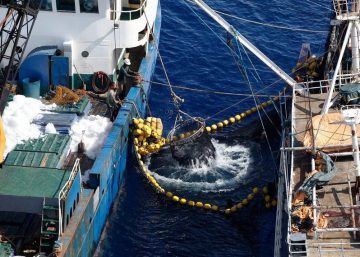 Facial recognition software is most commonly known as a tool to help police identify a suspected criminal by using machine learning algorithms to analyze his or her face against a database of thousands or millions of other faces. The larger the database, with a greater variety of facial features, the smarter and more successful the software becomes – effectively learning from its mistakes to improve its accuracy. Now, this type of artificial intelligence is starting to be used in fighting a specific but pervasive type of crime – illegal fishing. Rather than picking out faces, the software tracks the movement of fishing boats to root out illegal behavior. And soon, using a twist on facial recognition, it may be able to recognize when a boat’s haul includes endangered and protected fish. The latest effort to use artificial intelligence to fight illegal fishing is coming from New York-based The Nature Conservancy (TNC), which launched a contest on Kaggle – a crowdsourcing site based in San Francisco that uses competitions to advance data science –earlier this week. TNC hopes the winning team will write software to identify specific species of fish. The program will run on cameras, called electronic monitors, which are installed on fishing boats,,, Read the rest here 15:32
Facial recognition software is most commonly known as a tool to help police identify a suspected criminal by using machine learning algorithms to analyze his or her face against a database of thousands or millions of other faces. The larger the database, with a greater variety of facial features, the smarter and more successful the software becomes – effectively learning from its mistakes to improve its accuracy. Now, this type of artificial intelligence is starting to be used in fighting a specific but pervasive type of crime – illegal fishing. Rather than picking out faces, the software tracks the movement of fishing boats to root out illegal behavior. And soon, using a twist on facial recognition, it may be able to recognize when a boat’s haul includes endangered and protected fish. The latest effort to use artificial intelligence to fight illegal fishing is coming from New York-based The Nature Conservancy (TNC), which launched a contest on Kaggle – a crowdsourcing site based in San Francisco that uses competitions to advance data science –earlier this week. TNC hopes the winning team will write software to identify specific species of fish. The program will run on cameras, called electronic monitors, which are installed on fishing boats,,, Read the rest here 15:32Coast Guard saves 6 from scalloper sinking off New Bedford, MA
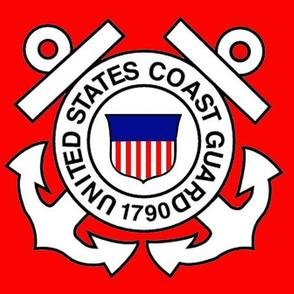 The Coast Guard and local responders rescued 6 people Sunday from a 72-foot scallop boat sinking five miles off New Bedford. A person aboard the scallop boat, Captain Jeff, used a VHF radio at 9:30 a.m. to hail watchstanders at Coast Guard Sector Southeastern New England, in Woods Hole, and report their boat was taking on water. A 47-foot Motor Life Boat crew from Coast Guard Station Menemsha and a helicopter crew from Air Station Cape Cod responded to help. The Buzzards Bay Task Force also responded to help the six people. Once on scene, a rescue swimmer deployed from the helicopter onto the Captain Jeff with dewatering equipment to control the flooding. After the Coast Guard rescue swimmer realized the dewatering equipment was not working, he assisted all six people off the scallop boat and aboard a task force boat. The survivors were taken into New Bedford to be evaluated by awaiting emergency services personnel. There were no reported injuries. The Captain Jeff is currently still sinking and adrift in New Bedford Harbor. Commercial salvage has been arranged. The cause of the sinking is under investigation. The Captain Jeff is homeported in New Bern, North Carolina. Link 13:48
The Coast Guard and local responders rescued 6 people Sunday from a 72-foot scallop boat sinking five miles off New Bedford. A person aboard the scallop boat, Captain Jeff, used a VHF radio at 9:30 a.m. to hail watchstanders at Coast Guard Sector Southeastern New England, in Woods Hole, and report their boat was taking on water. A 47-foot Motor Life Boat crew from Coast Guard Station Menemsha and a helicopter crew from Air Station Cape Cod responded to help. The Buzzards Bay Task Force also responded to help the six people. Once on scene, a rescue swimmer deployed from the helicopter onto the Captain Jeff with dewatering equipment to control the flooding. After the Coast Guard rescue swimmer realized the dewatering equipment was not working, he assisted all six people off the scallop boat and aboard a task force boat. The survivors were taken into New Bedford to be evaluated by awaiting emergency services personnel. There were no reported injuries. The Captain Jeff is currently still sinking and adrift in New Bedford Harbor. Commercial salvage has been arranged. The cause of the sinking is under investigation. The Captain Jeff is homeported in New Bern, North Carolina. Link 13:48

































